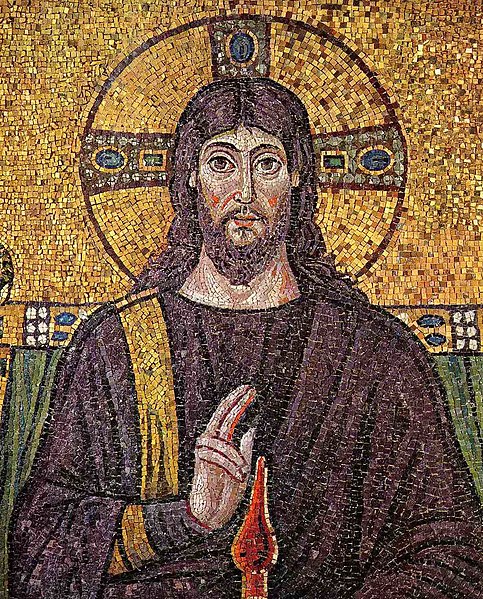Pope Honorius I was the bishop of Rome from 27 October 625 to his death. He was active in spreading Christianity among Anglo-Saxons and attempted to convince the Celts to calculate Easter in the Roman fashion. He is chiefly remembered for his correspondence with Patriarch Sergius I of Constantinople over the latter's monothelite teachings. Honorius was posthumously anathematized, initially for subscribing to monothelitism, and later only for failing to end it. The anathema against Honorius I became one of the central arguments against the doctrine of papal infallibility.
Mosaic at Saint Agnes Outside the Walls
Monothelitism, or monotheletism was a theological doctrine in Christianity that was proposed in the 7th century, but was ultimately rejected by the sixth ecumenical council. It held Christ as having only one will and was thus contrary to dyothelitism, the Christological doctrine accepted by most Christian denominations, which holds Christ as having two wills. Historically, monothelitism was closely related to monoenergism, a theological doctrine that holds Jesus Christ as having only one energy. Both doctrines were at the center of Christological disputes during the 7th century.
The ongoing debates about the nature of Christ caused controversy within the Church for centuries.
Emperor Heraclius, who defeated Persian King Khosrau II in this allegory, had a desire to secure internal harmony within his empire that made him adopt the doctrine of Monothelitism.
Emperor Constantine IV, who convened the Sixth Ecumenical Council in 678.
Pope Honorius I




